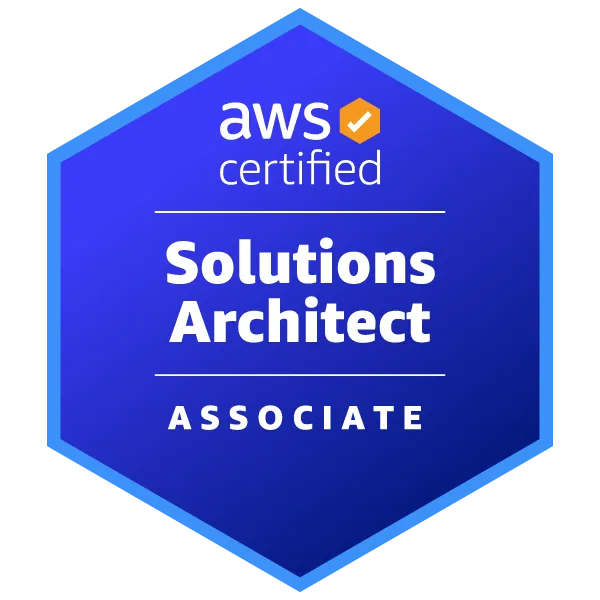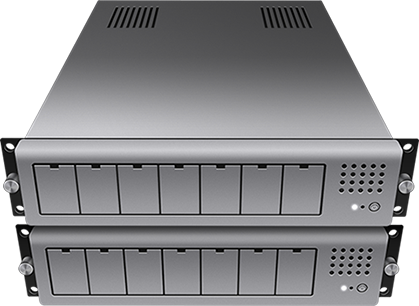My Journey to becoming an AWS Solutions Architect

Many of you have asked me how I managed to achieve the AWS Solutions Architect certification, so I thought I would blog it up for the masses! First of all, a little background on the certification itself. The certification is now in its third generation. What does this mean? Well, as you know in the world of cloud, nothing remains the same for very long. Amazon Web Services are well known for constantly changing services (either updating existing services with new functionality or introducing brand new services. As a result of this constant change, AWS has to update the exam content periodically. Here is the official overview of the AWS Certified Solutions Architect - Associate certification directly from AWS.
The industry-recognized AWS Certified Solutions Architect - Associate (SAA) showcases knowledge and skills in AWS technology across a wide range of AWS services. The focus of this certification is on the design of cost and performance-optimized solutions, demonstrating a strong understanding of the AWS Well-Architected Framework. This certification enhances the career profile and earnings of certified professionals and increases their credibility and confidence in stakeholder and customer interactions.
https://d1.awsstatic.com/training-and-certification/certification-badges/AWS-Certified-Solutions-Architect-Associate_badge.3419559c682629072f1eb968d59dea0741772c0f.png
Who should take this exam?
AWS Certified Solutions Architect - Associate is intended for anyone with one or more years of hands-on experience designing available, cost-efficient, fault-tolerant, and scalable distributed systems on AWS. Before you take this exam, we recommend you have:
One year of hands-on experience with AWS technology, including using compute, networking, storage, and database AWS services as well as AWS deployment and management services
Experience deploying, managing, and operating workloads on AWS as well as implementing security controls and compliance requirements
Familiarity with using both the AWS Management Console and the AWS Command Line Interface (CLI)
Understanding of the AWS Well-Architected Framework, AWS networking, security services, and the AWS global infrastructure
Ability to identify which AWS services meet a given technical requirement and to define technical requirements for an AWS-based application
I had already earned the Cloud Foundations certification before attempting the SAA-C02 exam. I took the second revision (SAA-C02) of the Exam on August 28th. A new version of the exam was released on August 29th, 2022 SAA-C03). I have worked with AWS for a couple of years now daily, however, I work only with a handful of the core services (S3, EC2, RDS, etc). For some of the more ‘obscure’ services, I needed to crack open some books to study and understand what the services are, what they do, and how they can be leveraged within the AWS ecosystem by other AWS customers. So, now what did I use to study? Way back in March of this year I purchased an online training course from Adrian Cantrill (https://learn.cantrill.io). Hands down this was the best tool I used for studying. The course comes with 35ish hours of training and labs. Yes, labs, which means you will be hands-on with actual AWS services. For me, this is the best way to learn, by actually doing things. The course is priced at USD 40, which to me is a no-brainer. The way that Adrian presents the content is very understandable, even for extremely technical concepts (I am looking at your shards!). A must-have course
The second place I used to help me learn about AWS, and the various services that I was not overly familiar with was the AWS subreddit. While not a traditional study guide that most people would use, I browsed the discussions on anything that I don’t use daily (Fargate, Lambda, SNS, etc). From there I took the problems that people described and researched not only how they should work, but a potential solutions. At that point, I would scroll through the entire thread to see what other users have suggested. Not the most traditional study route, but it gave me “real world” problems that people run into in the field.
The third and perhaps the most valuable was some quality practice tests. I found that these tests made me think very deeply about the question and the possible correct answers. So, with all of the sketchy “study” sites out there, I again used Reddit to determine what folks are using for practice tests, which led me to Jon Bonso (https://tutorialsdojo.com) The practice exam questions can be had for $15USD. What makes this study guide so fantastic, is that not only do you get fantastic questions that make you think through the options, but you get an incredibly detailed answer, explaining why the answer is correct, and perhaps more importantly, why the ‘other’ answers are incorrect.
Now, with all of the studying in the rearview mirror, it was time to take the exam. I had booked an early slot for August 28th (the second last day to take the exam), so if I failed, I could not take the SAA-C02 exam and would have to begin studying using the SAA-C03 material. Not ideal. I chose to take the exam from the comfort of my home which is one of the positives of Covid - remotely proctored exams. I checked in for the exam about 30 minutes before my start time and went through the ID verification, location verification, etc. Then I hit the “submit” button, indicating that I was ready to start the exam. Much to my dismay, I was greeted with a screen stating that I was 58th in the queue, and to sit tight.

The 57 people in front of me must have been towards the end of their exams, as the queue emptied in about 50 minutes. So, I started the exam about 20 minutes late. Not the end of the world, but not ideal. From there, the exam kicked off. Not much I can say about the content of the exam due to NDA. What is interesting about AWS exams compared to others in the industry, is that at the end of the exam, you do not get a pass/fail. You get a screen that tells you that you should have your score in 24 hours. For me, it was about 16 hours.
Now that I am a Certified Solutions Architect I am thinking about adding some more AWS certifications to my portfolio. So what do you guys think? Complete all the associate level exams, or head on up the professional level certifications? Let me know in the comments below.

Comments ()